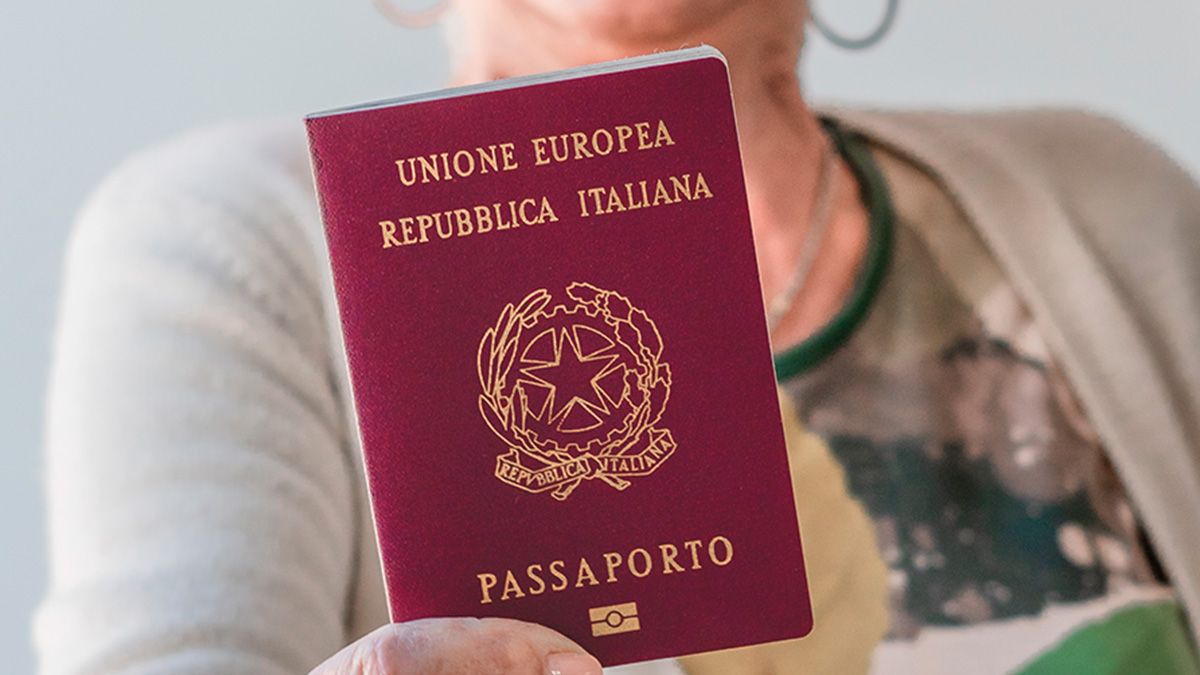The Chamber of Deputies of Italy on Tuesday approved the decree-law 36 of Prime Minister Giorgia Meloni, which establishes that Citizenship no longer automatically moves those born abroad that possess another nationality. In any case, the decree excludes the recognition of those born abroad before the entry into force of the regulations.
With 137 votes in favor and 83 againstthe scope of the Ius Sanguinis (Blood Law) was limited, resulting in that only parents or grandparents can transfer. In this way, they can obtain children or grandchildren from Italians, closing the door to thousands of great -grandchildren and great -great grandchildren.
To begin to govern the norm, the rubric of the president of Italy, Giorgia Melonisomething that will happen in the next few hours. The president was one of the main drivers of the decree, which is estimated to have a deep impact in South America, where it is estimated that between 60 and 80 million people could claim Italian citizenship under current law.
In fact, it transpired that between approximately 40,000 and 60,000 Italian citizenship requests are ongoing in Argentinabeing most great -grandchildren. Given the growing concern for the announcement of the decree, subsection a-bis of the approved text establishes a “cut” over time. In this way, in order to recognize the citizens, it must have been submitted until 23.59 of Rome of March 27, 2025, otherwise, the new requests and shifts scheduled after that date will be governed under the new law.
Last Thursday, the Senate of Italy had approved the new regulations with 81 votes in favor and 37 against, something that the Italian Chancellor Antonio Tajani celebrated: “A measure that intends to return dignity and meaning to a right That should be based on an authentic bond with Italy, not only bureaucratic, but also cultural, civic and identity. ”
“Citizens must be a serious and conscious recognitionwhich is confirmed by commitment. This reform does not exclude, but responsible. It proposes more selective and transparent criteria, capable of strengthening the integrity of our system and preventing abuse, ”he had remarked.
The new requirements to obtain Italian citizenship: what changes were introduced
Until recently, Italian citizenship was transmitted without inconvenience to the descendants of Italian citizens, even if their ancestors had naturalized in another country. However, the reinterpretation of the Article 12 of Law 555 of 1912 This dynamic has changed, imposing a new condition that limits access.
Now, if an Italian citizen naturalized In another country while his son was a minor, the latter loses the automatic right to citizens. This adjustment mainly affects those who descend from Italians who emigrated and acquired a new nationality before their children turned 21, the majority in Latin America.
This change in the regulations generates a lot of uncertainty and concern among thousands of people planning to process their citizenship. Thousands of descendants of Italians must verify that their ancestor was not naturalized Before fulfilling these new criteria, which adds an extra step to the application process.
For those who still qualify, the procedure remains the same, but with an emphasis on the verification of a history of naturalization. Obtaining the correct documents will be key to avoid setbacks and ensure that the application is accepted by the corresponding Italian consulate.
How to know if your ancestor was naturalized? Keys to verify your right to Italian citizenship
To confirm if an ancestor was naturalized and at what time he did, it is essential to investigate his legal status in the country he emigrated. In Argentina, this process can be carried out through the National Electoral Chamber, where detailed records of naturalization of foreign citizens are found.
Applicants must obtain a certificate from this entity confirming if their ancestor acquired another nationality and, if so, on what date it happened. This data is key to determining whether Italian citizenship is still valid within the line of offspring or if it has been interrupted by the new age criteria.
In addition to the certificate of the National Electoral Chamber, it is recommended to review Historical Archives YrMigratory egistros. In some cases, marriage or death documents can also contain information on the naturalization of a ancestor and help clarify the situation.
If it is proven that the ancestor in question was naturalized before his child reached the age of majority according to the new provisions, the citizenship request is not possible to be valid. In these cases, descendants must evaluate other migratory alternatives if they wish to reside in Italy or in another country in the European Union.
Source: Ambito




